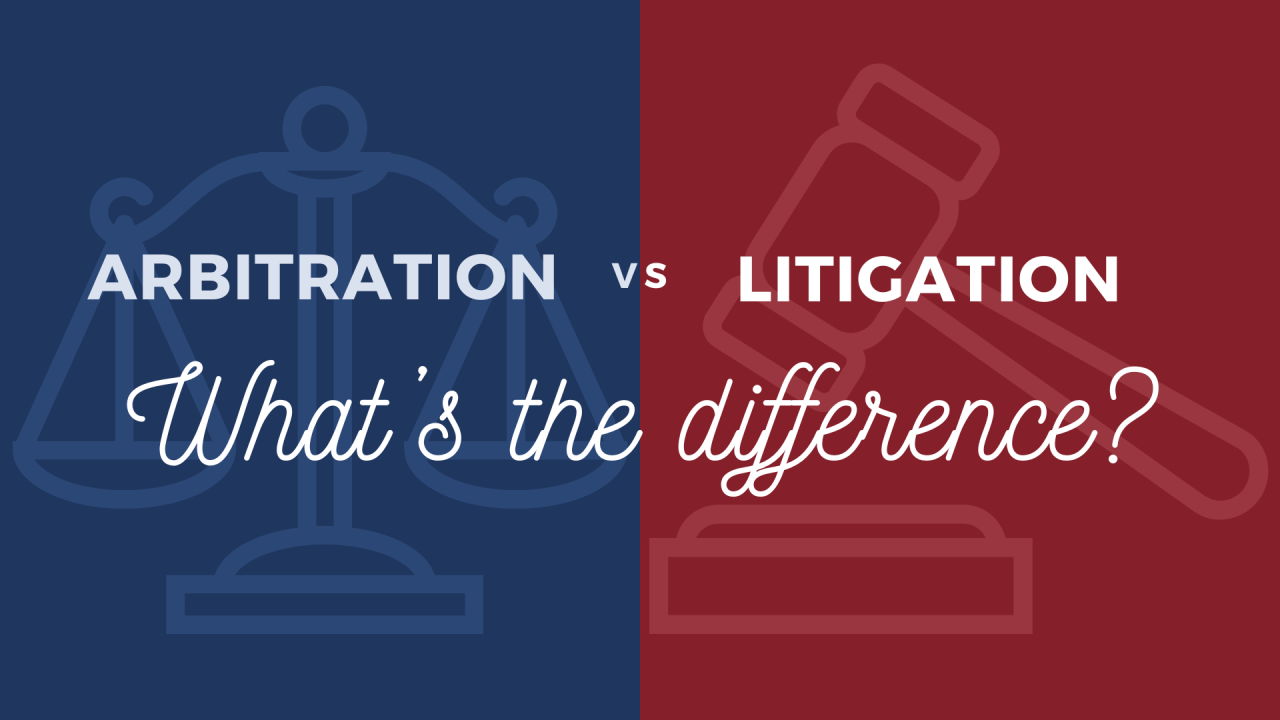
What Is The Difference Between Arbitration And Litigation?
Hi there!👋 We are Texas lawyers focusing on business law, health law, probate litigation, & OSHA defense. If you're new to our content and would like more articles like this, click the "subscribe" button above.
Arbitration or litigation... What's the best way to settle a business dispute?
Each process has pros and cons that could impact the outcome of a business dispute.
While you and your attorney will discuss the best option for your particular case, here are a few of the key differences:
Arbitration vs. Litigation

Essentially, litigation means taking a dispute to court. Both sides present their case before a judge or jury, who will then render a decision. Litigation is a public procedure with established Rules of Procedure and Rules of Evidence, which govern how a trial is conducted and resolved.
Arbitration, on the other hand, is a private process in which both parties agree that an arbitrator (a neutral third party) will render a binding decision.
In arbitration, resolving issues between parties are confidential and private, making it a smart choice for businesses that want to keep their private matters away from the public and press.
There are three primary providers of arbitration services in the United States: The American Arbitration Association (AAA), Judicial Arbitration and Mediation Services (JAMS), and American Health Law Association (AHLA).
Like litigation, both sides have a lawyer in arbitration, and both make arguments and present evidence to support their case.
Which Is Fastest?
Litigation typically takes longer due to the formal Rules of Procedure and Rules of Evidence and the backlog of the courts (which was exacerbated by COVID-19).
"If you're filing a lawsuit in Harris County, Texas, I'm going to tell you, best case scenario, you're looking at between 18 and 24 months from the day you file the suit to the day you're in court."

Arbitration is handled outside of the courts and can be a much speedier and informal process. However, arbitration can only take place if it is provided for in a contract, or if agreed upon by the parties.
Which Process Is More Expensive?

Other Ways That Arbitration Differs From Litigation
The Appeals Process: Unless otherwise agreed, the arbitrator’s decision is final and binding and cannot be appealed, except in limited circumstances. In litigation, either party may appeal the court’s decision in a civil trial based on an alleged material error in the trial.
Selecting a Subject Matter Expert: In litigation, the trial judge is assigned by the court without input from the parties involved. In the arbitration process, the parties choose the arbitrator, often based on subject matter expertise in a related field of law or industry.

What About Mediation?
Like arbitration, mediation is an alternative to litigation. However, there is no guarantee that the parties will come to a resolution.
The mediation process is facilitated by a mediator trained in dispute resolution and often takes place while parties await a court date (or arbitration conference) with the goal of reaching a “win-win” solution to the dispute.
In fact, many judges – especially in more populous areas, such as Harris County in Texas – will not let a case go to trial without mediation and automatically include a mediation deadline in the docket control order (or scheduling order) which is issued shortly after a lawsuit is filed.
If not ordered by the judge, either party may file a motion to compel mediation, but it is unlikely that the compelled party will participate in the negotiations in good faith.
If a settlement is reached, it is then recorded in a written agreement that is legally binding. If the parties fail to come to a resolution, then litigation or arbitration is often the next step.
I Was Sued In Court, But My Contract Calls For Arbitration. What Are My Options?
If you signed a contract that contains an arbitration clause, a lawsuit filed against you in civil court can come out of left field. But, depending on the specific facts and circumstances involved, you do have options:
You can litigate. Even though your contract states otherwise, you don’t have to arbitrate if both parties agree to proceed with litigation. You can waive that requirement in your contract or arbitration agreement and proceed with litigation.
Or, you can compel the other party to arbitrate. When only one contracted party wants to arbitrate a dispute subject to an arbitration agreement, that party may file a motion or claim to compel the other to arbitrate.
If you choose to compel arbitration, your next steps will be governed by either state or federal law – the Texas Arbitration Act or the Federal Arbitration Act...
To read the rest of this article, go to the original on the Hendershot Cowart website, where you'll find more concise, practical advice for settling disputes and protecting your business from legal risks.
I Was Sued In Court, But My Contract Calls For Arbitration. What Are My Options?